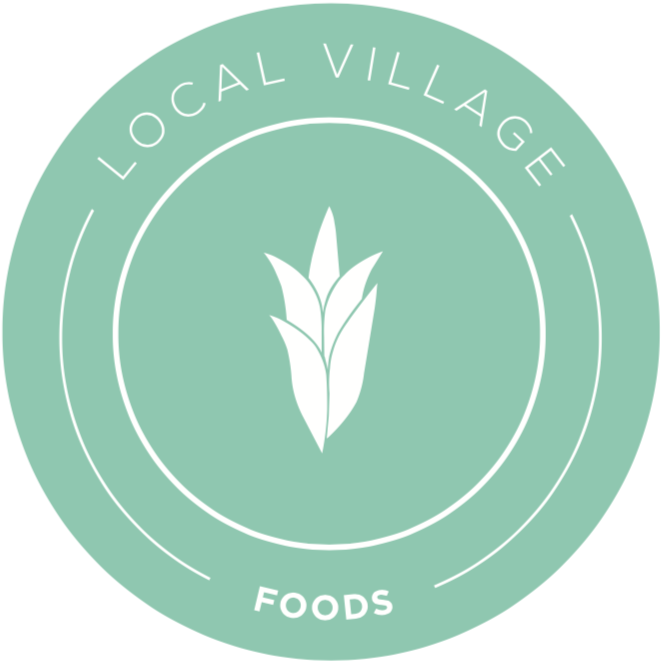/ Blog /
Meet My Friends at Local Village Foods

Hey friends, you all know I love a good food story, especially where women entrepreuenurs are involved, so I was over the moon when the very lovely Sipamandla from Local Village Foods asked me to work with her on sharing the journey of her sustainable food brand.
Local Village Foods is built on the idea of using food to hero indigenous African ingredients, but in a sustainable way that supports and uplifts small-scale farmers and communities. Sipamandla’s passion and plan is so effective that she was named on the Mail and Guardian list of South Africa’s Top 200 Young People to Watch in 2019, and it’s easy to see why she’s set to change the face of sustainable agropreneurship in Africa.
Here’s a recent excerpt from bizcommunity.com by Lauren Hartzenberg
“African food is not represented in the global banquet,” Manqele says. “We may eat it once a year on Heritage Day, but it hardly features in our day-to-day diet.”
Local Village Foods, based in Gauteng, sources, processes and packages food grown on the continent to sell to the hospitality industry and in retail via food markets and health shops. No less than 90% of the brand’s ingredients are sourced from small-scale producers across Africa – from Limpopo and KwaZulu-Natal to Nigeria, Malawi and Benin.
Locally grown
The company’s product range is a mix of indigenous ingredients along with others – like cassava and moringa – that aren’t native to Africa, but have since naturalised to the environment and grow particularly well in specific areas on the continent.
In addition to offering more familiar products like granola, raw cacao and African raw honey, Local Village Foods also sources the bambara groundnut, a grain legume originating in West Africa; and tiger nuts, a tuber that’s indigenous to Egypt but is now grown in a number of other African countries.
Then there’s teff, a fine grain that’s naturally gluten-free and has been identified by WWF as one of the top 50 future foods. Ground into a flour, it’s used for making the traditional Ethiopian bread injera, but its baking applications extend far beyond just bread.
Roselle, meanwhile, is a species of Hibiscus that’s native to West Africa but is now cultivated successfully in southern African. Considered a superfood, it has multiple food applications especially in the creation of beverages and desserts.
Developing a village of agripreneurs
Manqele founded Local Village Foods with a vision to create a network of African agripreneurs supplying equitably-sourced and sustainably-grown African ingredients.
She was born in Lusikisiki, a small, poverty-stricken town in the Eastern Cape with a high unemployment rate. Manqele described her frustration growing up there because her village seemingly had everything it needed to be prosperous – “an amazing climate, good resources, land and people,” she said.
Driven to positively impact these circumstances, she went to university to study a Social Science degree majoring in Community Development and Entrepreneurship. “I wanted to understand if perhaps entrepreneurship could be a vehicle for sustainable rural development in my community and others like it,” Manqele explained.
After leaving her first official full-time job at an asset management company, she explored the food industry, familiar with the concept as she had grown up in an area where income was derived mainly from agricultural products.
She eventually launched Local Village Foods with the belief that fair and sustainable food businesses hold potential solutions to many of Africa’s interconnected challenges.”
All in all, the Local Village Foods story is a beautiful, powerful story about being a force for good and a driver for positive change, and it’s something that I’m so excited to share and support in a small way.
“Food helps us celebrate and appreciate the significance of our diverse traditions, it accompanies all of life’s most significant moments. Food is the currency for true connection. Connection to self, to others, and to all of life” says Sipamandla, and she’s made it her business to bring African food to the global table, and I couldn’t be more excited to see the story unfold.
For a full list of Stockists head on over here:
https://localvillagefoods.com/stockists/
Sipamandla also writes an amazing Blog on food sustainability and where she also shares simple recipes that hero local product and producers over here:
https://localvillagefoods.com/blog/
Read more about Sipamandla and her ‘Local Village Foods’ Story over here: https://localvillagefoods.com/blog/2020/04/20/foodnextafrica-the-sa-food-startup-championing-traditional-african-flavours/








